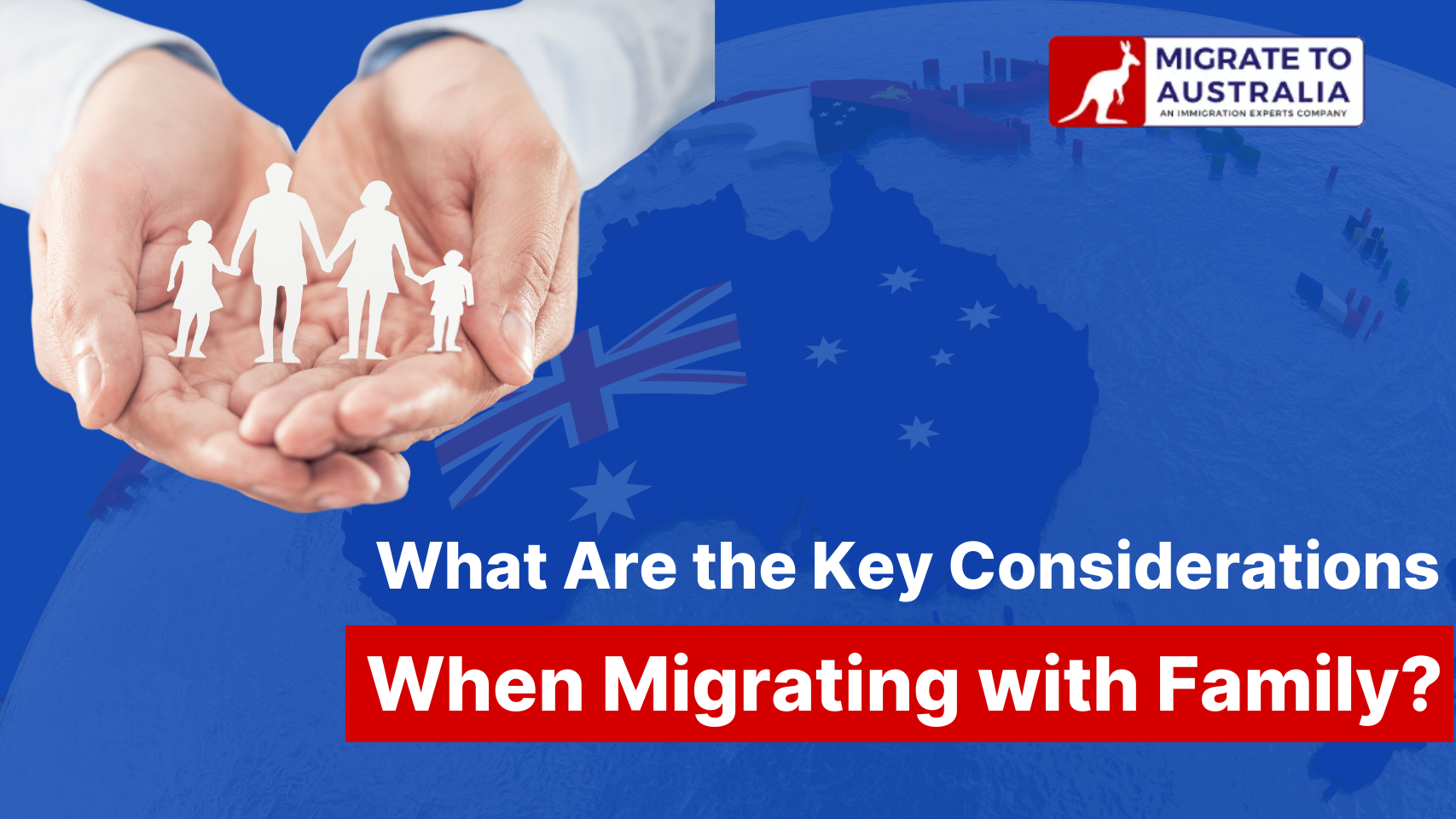Migrating with family is a monumental decision that involves careful planning and consideration, especially when moving to a different country. Many families around the world are seeking better opportunities, a higher quality of life, or a fresh start. Among the most popular destinations for migration is Australia, which offers a vibrant lifestyle, excellent education, and job opportunities. In this blog post, we’ll explore the key considerations to keep in mind when migrating with family, particularly for those looking to migrate to Australia from India.
Understanding Your Family’s Needs
Before embarking on your journey to migrate to Australia, it’s essential to assess your family’s needs. Each family member may have different priorities and expectations regarding the move. Discuss these needs openly to ensure everyone is on the same page. Consider factors such as:
- Education: Are there specific schools or educational systems that your children are interested in? Australia has a range of public and private schools, and the education system can vary from state to state.
- Employment Opportunities: What job prospects are available for you and your spouse? Research the job market in your chosen city to understand the demand for your skills.
- Healthcare: Access to quality healthcare is crucial. Understand how the Australian healthcare system works and what health insurance options are available.
- Cultural Adaptation: Moving to a new country involves cultural adjustments. Discuss with your family how you plan to adapt to Australian culture and whether you’ll seek support through community groups.
Researching the Migration Process
When considering how to migrate to Australia, it’s vital to familiarize yourself with the migration process. This includes understanding the various visa options available for families. Some common pathways include:
- Skilled Migration Visas: For professionals and tradespeople with skills in demand in Australia. The General Skilled Migration program includes several subclasses.
- Family Visas: If you have family members who are already Australian citizens or permanent residents, they may be able to sponsor you.
- Student Visas: If you or your children are planning to study in Australia, a student visa may be appropriate. This can also lead to post-study work opportunities.
Understanding the specific requirements and application processes for these visas is essential. You may want to consult a migration agent or legal expert who specializes in Australian immigration to guide you through the complexities of how to migrate to Australia from India with family.
Financial Planning
Migrating with family requires careful financial planning. Moving to Australia can be costly, so budgeting for various expenses is essential. Key financial considerations include:
- Visa Fees: These can vary significantly depending on the visa type. Ensure you budget for application fees and any costs associated with medical examinations or police clearances.
- Living Expenses: Research the cost of living in your desired city, including housing, transportation, groceries, and utilities. Cities like Sydney and Melbourne tend to have higher living costs compared to other regions.
- Education Costs: While public schooling in Australia is free for residents, international students often pay tuition fees. Plan for these costs if you are bringing children who will attend school.
- Emergency Funds: It’s wise to have a financial cushion for unexpected expenses during your transition period. Having a few months’ worth of living expenses saved can provide peace of mind.
Securing Housing
Finding suitable housing is another critical consideration when migrating with family. Depending on your budget and preferences, you can choose between renting or buying a home. Here are some tips:
- Research Neighborhoods: Look for neighborhoods that are family-friendly, have good schools, and offer amenities such as parks, shopping, and public transport.
- Short-Term vs. Long-Term Rentals: Consider starting with a short-term rental when you first arrive to give you time to explore and find a permanent home that suits your family’s needs.
- Local Real Estate Agents: Engaging with local real estate agents can help you navigate the housing market and find suitable options for your family.
Navigating Cultural Differences
Cultural differences can significantly impact your family’s adaptation to life in Australia. Understanding and embracing these differences can help ease the transition:
- Community Involvement: Seek out local Indian communities or cultural groups. Connecting with others who share your background can provide support and help ease feelings of homesickness.
- Cultural Education: Encourage your children to learn about Australian customs, traditions, and values. This can help them integrate more easily into their new environment.
- Open Communication: Maintain open communication within your family about feelings and experiences during the migration process. It’s normal to feel overwhelmed, and discussing these feelings can help everyone adjust.
Planning for the Future
Once you’ve successfully migrated to Australia with your family, it’s important to think about your long-term plans. Consider your goals for permanent residency and citizenship, as well as future educational and career opportunities for your family members.
- Explore Permanent Residency Options: Many temporary visas can lead to permanent residency. Understanding these pathways can help you plan your next steps.
- Continued Education and Training: Encourage your children to pursue further education or vocational training to enhance their career prospects in Australia.
- Establishing Roots: Involve your family in local community activities and events to create a sense of belonging and make Australia feel like home.
Conclusion
Migrating with family is a significant decision that requires thorough consideration of various factors, especially when planning to migrate to Australia from India. By understanding your family’s needs, researching the migration process, planning financially, securing suitable housing, navigating cultural differences, and planning for the future, you can create a smoother transition to your new life in Australia. Each step you take will bring you closer to establishing a fulfilling life in this beautiful and diverse country.

